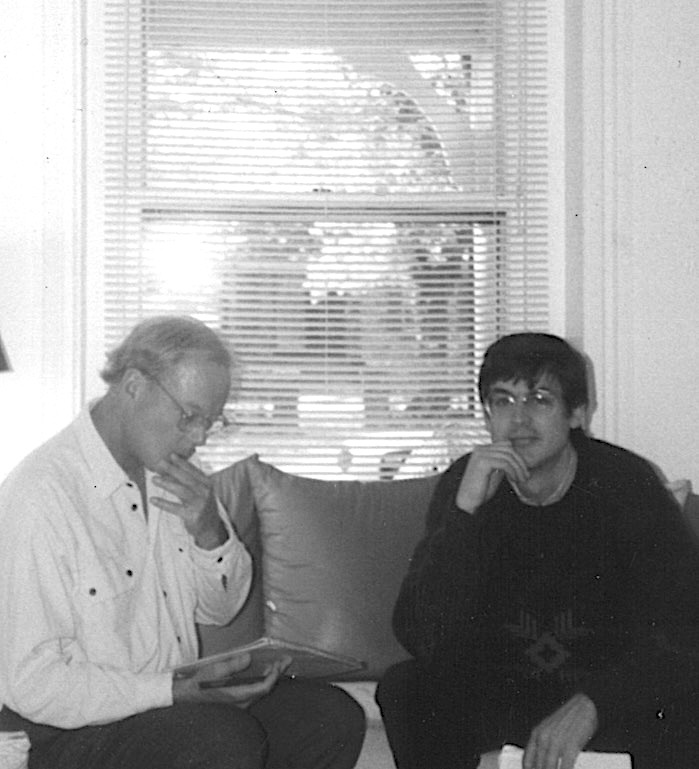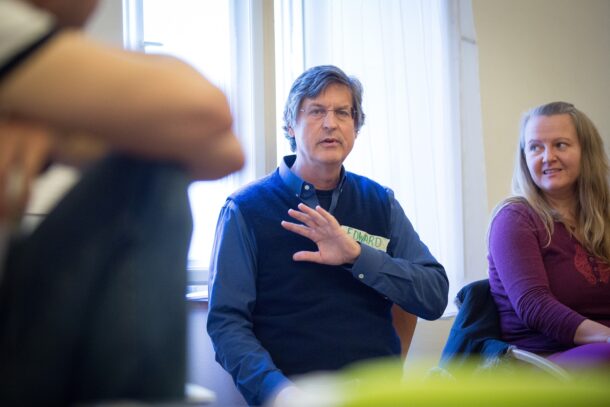Be a part of spreading peace, belonging, connection & community to the world….
And, become more of who you are and who you are meant to be.
Events Coming Soon!
“The CB process collapses time... It builds deep trust, authentic connection, and unusual safety in a very short period of time - even with people from diverse backgrounds. What might take years, takes days…”
“It’s a paradox. I get to know myself by connecting and building Community with others.”
Edward Groody, MSOD, Founder
WHAT WE DO
We teach the skills, guidelines and methods to build “authentic connection,” “unusual safety,” and “extraordinary respect” in groups, teams, organizations and communities.
HOW WE HELP
Personal & spiritual healing, growth, and transformation
Connection & Belonging
CBI’s trainings make remarkable breakthroughs possible.
Team & Leadership Effectiveness

Emotional Intelligence & Soft-skills
Improved outcomes
Public safety & neighborhood strengthening
Healthy communication & relationships
Reach Your Potential
Trauma-informed

Who are you?
We offer trainings & services for your specific needs.
Non-profit, Government, Human Services, Healthcare, Criminal Justice
- Improved Outcomes & Evidence-based
- Trauma-informed
- Continuing Education Units (CEUs)
Individual Seekers
- Healing, Growth, Breakthroughs
- Healthy Communication; Relationships
- Self-care, Connection and Community
Intentional Communities
- Authentic Connection
- Healthy Communication
- Ongoing Community
Business & Organizations
- Retention, Engagement & Belonging
- Emotional Intelligence & Soft Skills
- Team Effectiveness & Mindfulness
- Social Connection & Wellbeing
Religious & Faith-Based
- Healthy Communication & Relationships
- Spiritual Formation & Contemplative Prayer
- Inter-spiritual Community Building
Education & Academia
- Student Retention & Onboarding
- Student Loneliness & Isolation
- Ideal Learning Environments

Edward Groody, MSOD, CBI’s founder, is one of a handful of individuals to train and work with Dr. Peck as part of his original nonprofit organization staff.
There is a yearning in the heart for peace. Because of the wounds and rejections we have received in past relationships, we are frightened by the risks. In our fear, we discount the dream of authentic community as merely visionary. But there are rules by which people can come back together, by which the old wounds can be healed… The purpose of Community Building is to teach these rules, to make hope real again and to make the vision actually manifest in a world which has almost forgotten the glory of what it means to be human.
M. Scott Peck, M. D.
Developer of the original Community Building process
Author of The Road Less Traveled and The Different Drum
Testimonials
RESEARCH
THE IMPACT OF BELONGING, CONNECTION & COMMUNITY
It’s common sense, and research backs it up – authentic relationship is the vehicle for positive change –
at home, at work, in both our personal and professional lives.
“Loneliness and isolation represent profound threats to our health and well-being… A culture of connection is vital to creating the changes needed in society."
“The benefits of social connection extend beyond health-related outcomes. They influence: educational attainment, workplace satisfaction, economic prosperity, and overall feelings of well-being and life fulfillment.”
- US Surgeon General’s Advisory on the Healing Effects of Social Connection and Community 2023

Did you know?
Health & Society
Lack of social connection is associated with a significantly increased risk for early death from all causes.
Source: 2020 Consensus Study Report, National Academies of Sciences Engineering and Medicine.
Lacking social connection can increase the risk for premature death as much as smoking up to 15 cigarettes a day.
Source: US Surgeon General’s Advisory 2023
A three-year study of 26 cities in the U.S. found that those with the highest levels of social connection experienced the greatest growth in GDP during the study period. In 2018, only 16% of Americans reported that they felt very attached to their local community.
Source: US Surgeon General’s Advisory 2023
Trust in each other and major institutions is at near historic lows. Polls conducted in 1972 showed that roughly 45% of Americans felt they could reliably trust other Americans. That proportion shrank to roughly 30% in 2016. Levels of polarization are at near historic highs. These phenomena have widespread effects on society.
Source: US Surgeon General’s Advisory 2023

Loneliness and social isolation increase the risk for premature death by 26% and 29% respectively.
Source: US Surgeon General’s Advisory 2023
Poor social connection is associated with:
- 29% increased risk of heart disease and a 32% increased risk of stroke.
- increased risk for anxiety, depression, and dementia.
- increase susceptibility to viruses and respiratory illness
Source: US Surgeon General’s Advisory 2023
Social isolation is arguably the strongest and most reliable predictor of suicidal behavior among samples varying in age, nationality, and clinical severity.
Source: 2010 Study, “The Interpersonal Theory of Suicide
Almost half of Americans (49%) in 2021 reported having three or fewer close friends—only about a quarter (27%) reported the same in 1990. Social connection continued to decline during the COVID-19 pandemic.
Source: US Surgeon General’s Advisory 2023
The rate of loneliness among young adults has increased every year between 1976 and 2019. Loneliness and social isolation among children and adolescents increase the risk of depression and anxiety.
Source: US Surgeon General’s Advisory 2023
Sadly, around 50% of adults in the U.S. reported being lonely in recent years — and that was even before COVID-19.
Source: US Surgeon General’s Advisory on the Healing Effects of Social Connection and Community 2023
Business
Highly engaged employees are 18% more productive. Employees with low engagement cost the global economy an estimated $8.8 trillion or 9% of global GDP.
Sources: Gallup, 2020; Gallup, 2023
Poor employee communication costs companies with 100,000+ employees $62.4 million per year, per company.
Source: Society for Human Resources
Teams with high psychological safety demonstrate
57%
more collaboration
50%
more productivity
74%
less stress
Source: Monet (2021), Accenture
Only 21% of the global workforce is engaged at work.
Source: Gallup 2022
Voluntary turnover costs US businesses $1 Trillion.
Source: Gallup 2019
Miscommunication costs smaller companies of 100 employees an average of $420,000 per year.
Source: Debra Hamilton, “Top Ten Email Blunders that Cost Companies Money”
Agile does not work without psychological safety…. It’s the way team members interact that ultimately determines success.
Source: Harvard Business Review
Miscommunication costs companies $37 billion (or $26,000 per employee) in the US and UK every day.
Source: Salesforce, 2014
The benefits of social connection extend beyond health-related outcomes. They influence an individual’s educational attainment, workplace satisfaction, economic prosperity, and overall feelings of well-being and life fulfillment.
Source: US Surgeon General’s Advisory 2023
Disengagement costs 34% of an employee's annual salary. Source: Gallup
The annual healthcare spending due to workplace burnout is anywhere from $125 billion to $190 billion.
Source: Harvard Business Review
When workers are motivated by meaningful work, the resulting gains in worker productivity add up to over $9,000 per worker, per year.
Source: BetterUp 2018
Teams with high psychological safety are better able to innovate using agile processes.
Source: HBR 2022
A Study of the Royal Navy found that emotional intelligence (EQ) makes a greater overall contribution to leadership performance than does IQ.
Oxford and Harvard Universities found there is a strong positive relationship between employee well-being and firm financial performance including: firm value, return on assets, and profits.
Source: University of Oxford, Wellbeing Research Centre, 2023
The World Economic Forum (2023) surveyed 803 companies across 27 industries to learn what is most needed in coming years. Empathy, Listening, Self-awareness, and Resiliency were listed in the top 10 skills for future work.
The Microsoft Work Trend Index (2023) surveyed 31,000 people in 31 countries: Emotional intelligence ranked in the top three skills most essential in the future workplace.
Harvard, Michigan, and Boston Universities found that workers with soft skills training are better liked, have increased employee satisfaction, are more likely to remain with the company, and are 12% more productive than those without them
More connected teams enjoy higher levels of well-being. Source: US Surgeon General’s Advisory 2023
Interested in registering for a workshop?
Would you like to schedule an individual call for more information?



